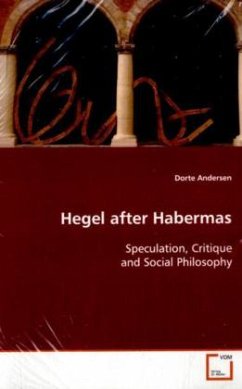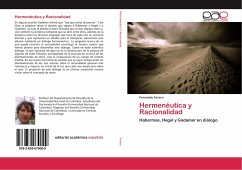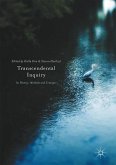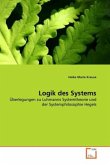The social significance of G. W. F. Hegel's
philosophy has been a heavily disputed topic almost
since the philosophy developed. Today is no
exception. This book introduces and discusses the
social philosophical relevance of his thought by
paying attention to how Hegel s speculative
dialectics unfolds. It argues that the contemporary
importance in a social philosophy of Hegel s
philosophical project lies in the critical task it
performed and that this critical task depends on the
recourse Hegel took to speculation. Hence, the book
revitalises the importance in contemporary social
philosophy of the critical endeavour performed in
Hegel s work and it responds to recent
interpretations of Hegel s philosophy where the
attempt has been to rescue Hegel s philosophical
project by emphasising a pragmatic and post-
metaphysical dimension to the philosophy. The
arguments develop in a textual engagement with
Hegel s work and its progression and they rely on
ongoing critical engagement with recent social
philosophical appropriations of Hegel s speculative
philosophy, particularly in the German critical
theoretical tradition.
philosophy has been a heavily disputed topic almost
since the philosophy developed. Today is no
exception. This book introduces and discusses the
social philosophical relevance of his thought by
paying attention to how Hegel s speculative
dialectics unfolds. It argues that the contemporary
importance in a social philosophy of Hegel s
philosophical project lies in the critical task it
performed and that this critical task depends on the
recourse Hegel took to speculation. Hence, the book
revitalises the importance in contemporary social
philosophy of the critical endeavour performed in
Hegel s work and it responds to recent
interpretations of Hegel s philosophy where the
attempt has been to rescue Hegel s philosophical
project by emphasising a pragmatic and post-
metaphysical dimension to the philosophy. The
arguments develop in a textual engagement with
Hegel s work and its progression and they rely on
ongoing critical engagement with recent social
philosophical appropriations of Hegel s speculative
philosophy, particularly in the German critical
theoretical tradition.








